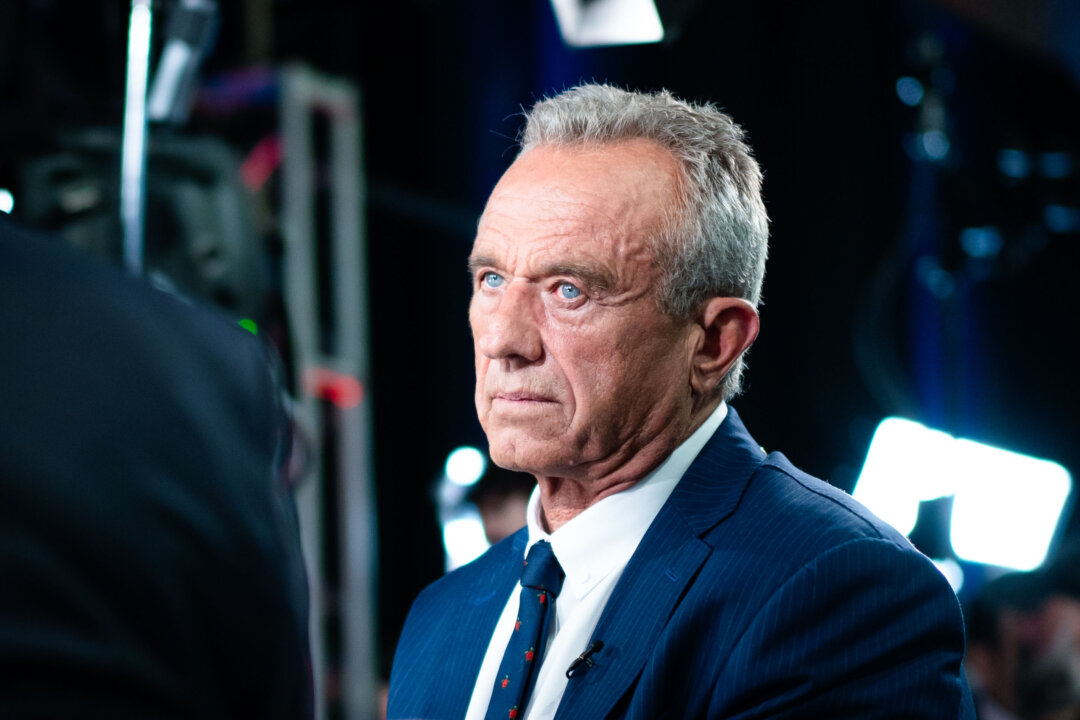Shares of Pfizer, Moderna, Bavarian Nordic, and AstraZeneca were all down on Friday.
Following President-elect Donald Trump’s decision on Thursday to name Robert F. Kennedy Jr. as head of the Department of Health and Human Services (HHS), stocks for multiple vaccine manufacturing companies dropped during Friday morning’s trading period.
Shares of Pfizer on Friday dropped by 4 percent, while Moderna’s dropped by around 7 percent. Both pharmaceutical companies manufacture commonly used vaccines, including mRNA-based shots for COVID-19. Novavax shares dropped by about 1.6 percent in the same period.
In Europe, shares of Bavarian Nordic, which makes a vaccine for mpox, fell by more than 15 percent on Friday, while pharmaceutical companies GSK and AstraZeneca dropped by 2 percent or more. AstraZeneca also makes a COVID-19 vaccine that is used across Europe and other countries, although it was never approved for use in the United States.
Kennedy, also known as RFK Jr., has vowed to make sweeping changes at HHS, namely in how food and drugs are regulated. He’s also backed broad changes to how scientific research is done and how it’s funded by the federal government.
In one instance following Trump’s win this month, Kennedy warned Food and Drug Administration (FDA) staffers to pack their bags on social platform X, and he has also said that he wants to fire 600 employees at the National Institutes of Health (NIH), which oversees vaccine research, and replace them with 600 new employees.
Kennedy has been a vocal opponent of certain childhood vaccines for years, sometimes linking them with rising autism rates and autoimmune disorders. However, in a recent interview with NBC News, Kennedy said that he won’t “take away anybody’s vaccines” if he enters the federal government.
“If vaccines are working for somebody, I’m not going to take them away. People ought to have choice, and that choice ought to be informed by the best information,” he said on Nov. 6, a day after Trump’s win. “So I’m going to make sure scientific safety studies and efficacy are out there, and people can make individual assessments about whether that product is going to be good for them.”
Aside from vaccines, Kennedy has been critical of how the FDA regulates food, namely in products that are marketed for children. When he endorsed Trump earlier this year, he came up with the Trump-aligned slogan, “Make America Healthy Again,” or MAHA.
He has accused the FDA, HHS, and other federal health agencies of being corrupt and colluding with pharmaceutical industries as well as corporate entities such as Monsanto, the former company that produced Roundup, the glyphosate-based herbicide that has been linked to an elevated risk of cancer. Notably, Kennedy made a name as an environmental attorney who successfully took on large corporations including Monsanto and DuPont.
Shares of Bayer, which purchased Monsanto, were down by 1 percent on Monday. DuPont was also down by about 1 percent.
“We have a generational opportunity to bring together the greatest minds in science, medicine, industry, and government to put an end to the chronic disease epidemic,” Kennedy said in a statement on Thursday, following Trump’s announcement.
Kennedy originally ran in the Democratic primary against President Joe Biden before deciding to launch an independent bid. He then suspended that campaign earlier this year and endorsed Trump, who has repeatedly praised Kennedy and promised him influence in a future administration.
Some medical and science groups indicated Thursday that they strongly oppose Trump’s choice of Kennedy to lead HHS, a sprawling agency that not only oversees the FDA but also the CDC, the NIH, the Centers for Medicare and Medicaid Services, and many more.
“Robert F. Kennedy, Jr., is not remotely qualified for the role and should be nowhere near the science-based agencies that safeguard our nutrition, food safety, and health,” said Dr. Peter Lurie, president of the public health watchdog group Center for Science in the Public Interest.
The Associated Press contributed to this report.

